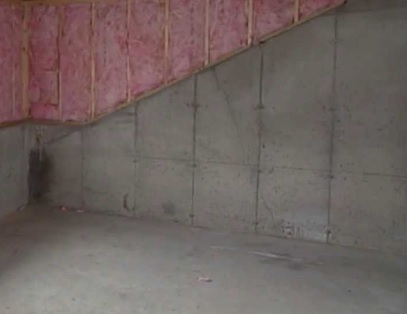The best basement floor sealer for sealing your basement floor will depend on the amount of moisture present, your reason for sealing, and what you want your basement floor to look like once sealed.
Basement Floor Sealers vs Basement Floor Coatings
It is important to keep in mind that basement sealers are designed to reduce moisture, they won’t stop it. Penetrating sealers are breathable sealers that reduce the movement of moisture through the pores of the concrete. Regardless of how many coats are applied, the concrete will still move moisture to the surface. If you want to stop moisture, you will need to use a non-breathable coating, such as an epoxy coating.
Types of Basement Floor Sealers
The most common type of basement floor sealer is a silicate densifier. Silicate densifiers penetrate into the surface of the concrete where they chemically react to form calcium silicate hydrate within the pores. The calcium silicate hydrate barrier very closely resembles a crystalline structure. The structure will grow in the pores and reduce the size of the pores, therefore slowing down the movement of water and moisture through the pores. Two coats are typically required, but more coats can be applied in severe cases. Regardless of how many coats are applied, the pores of the concrete will never completely close because the crystalline barrier within the pores is also breathable.
Aside from reducing the movement of water and moisture through the pores of the concrete, silicate densifiers will also help to reduce dusting and efflorescence.
Best silicate basement floor sealers:
- Armor S2000 Concrete Sealer Review (concentrated)
- RadonSeal Concrete Sealer Review (pre-diluted)
- Stone Technolgies X-1 Concrete Sealer Review (pre-diluted)
- Ashford Formula Concrete Sealer Review (pre-diluted)
A second type of basement floor sealer is a water repellent sealer. Water repellent sealers (not all, but some) will help to reduce the movement of moisture through the concrete. They will also help to reduce the growth of mold and mildew by preventing water and moisture absorption on the surface. Silicate densifiers are more effective than water repellent sealers alone, but when used in combination with a silicate, they make a powerful combo.
- Armor SX5000 Concrete Sealer Review (average 4.8 star review)
- Siloxane PD Concrete Sealer Review (average 4.5 star review)
Basement Floor Sealer Limitations
As previously mentioned, penetrating sealers are great for reducing the movement of water and moisture through the concrete, but they won’t stop it. If you are simply trying to reduce musty odors or moisture and have no plans of finishing your basement, then a sealer is a great option. If you are going to install flooring, using the basement as living space, or finish the basement, then you should consider a moisture mitigating epoxy coating instead.
A second thing to keep in mind is penetrating sealers should NOT be used to seal cracks. Cracks are openings in the concrete and openings allow for water and moisture to enter in through them. While you can apply a penetrating sealer to a crack, a crack can’t be repaired with a sealer. If water or moisture becomes an issue, it will move through the crack just as easily as it would if the crack were unsealed. Basement floor cracks should be repaired with a concrete repair product.

